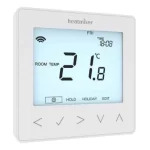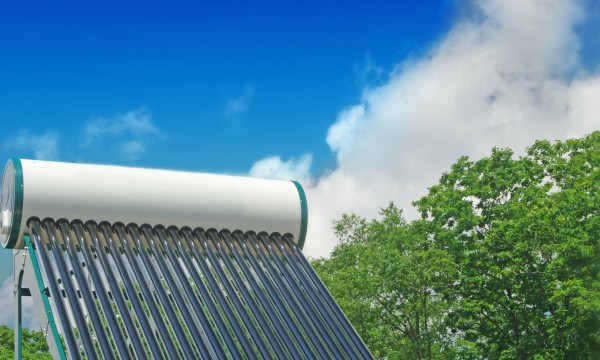
7 Most Environmentally-Friendly Water Heaters
In our pursuit of a greener planet, small changes at home can significantly impact us. One such change revolves around the way we heat our water. Environmentally-friendly water heaters have emerged as energy efficiency champions, offering a sustainable alternative to their traditional counterparts. In this article, we explore the top ten options in the world of eco-conscious water heaters. From harnessing solar power to utilizing advanced heat pump technology, these appliances exemplify the future of responsible home heating. Join us as we uncover the simplicity and effectiveness of these environmentally friendly water heaters, each contributing to a more sustainable tomorrow.
Heat Pumps: Environmentally-Friendly Water Heaters
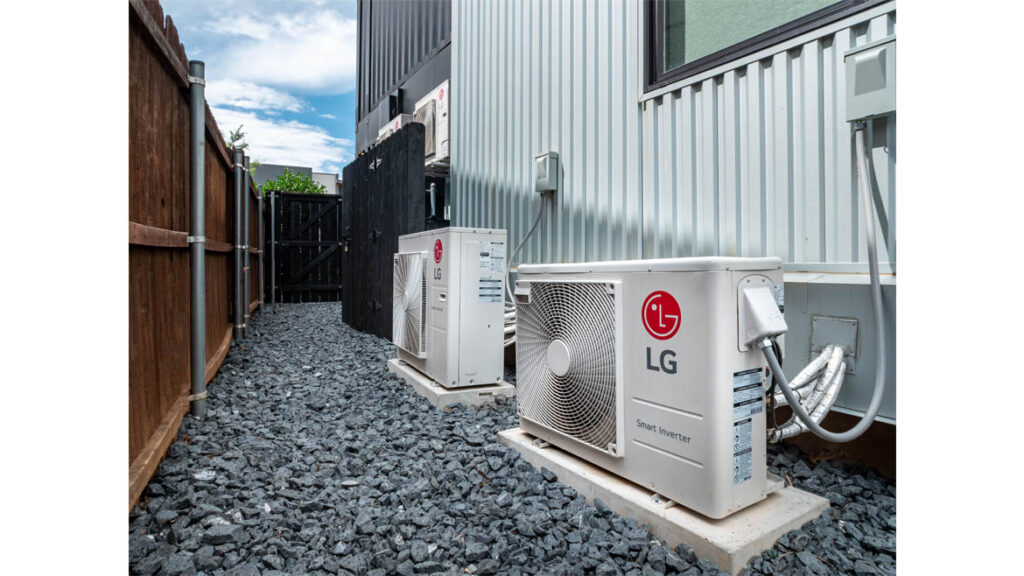
Environmentally Friendly Heat Pump Water Heaters are innovative appliances designed to efficiently heat water while minimizing energy consumption and reducing their environmental impact. These water heaters operate on the principle of heat transfer, using electricity to move heat from the surrounding air into the water rather than generating heat directly. They consist of a heat pump unit and a storage tank, making them a greener alternative to conventional water heating methods.
Pros of Heat Pump Water Heaters
- High Energy Efficiency: Environmentally Friendly Heat Pump Water Heaters are among the most energy-efficient options, as they can be up to three times more efficient than traditional electric water heaters. They extract heat from the air, making them especially economical in moderate climates.
- Reduced Carbon Footprint: By relying on ambient heat, these water heaters produce fewer greenhouse gas emissions than conventional water heaters, which burn fuel to generate heat.
- Cost Savings: The high energy efficiency characteristics of these water heaters lead to significant cost savings on electricity bills over time, offsetting the initial purchase price.
- Versatility: Heat pump water heaters can be installed in various locations, including garages, basements, or utility rooms, making them adaptable to different home setups.
Cons of Heat Pump Water Heaters
- Upfront Cost: Heat Pump Water Heaters that are environmentally friendly typically come with a higher initial purchase and installation cost compared to conventional water heaters. Nonetheless, the energy savings achieved over the long term can compensate for this initial investment.
- Climate Dependency: The efficiency of these systems can be influenced by climate conditions. In extremely cold environments, the heat pump might face challenges in extracting sufficient heat from the air, leading to a decrease in overall performance.
- Space Requirements: They require ample space for installation, which might be a limitation for some homes.
Cost of Heat Pump Water Heaters
The cost of Environmentally Friendly Heat Pump Water Heaters can vary depending on brand, size, and installation requirements. On average, expect to pay between $1,000 to $3,500 for the unit itself, and installation costs can range from $500 to $1,500. While the initial cost is higher than traditional water heaters, the long-term energy savings can make them cost-effective.
Solar-Powered Environmentally-Friendly Water Heaters
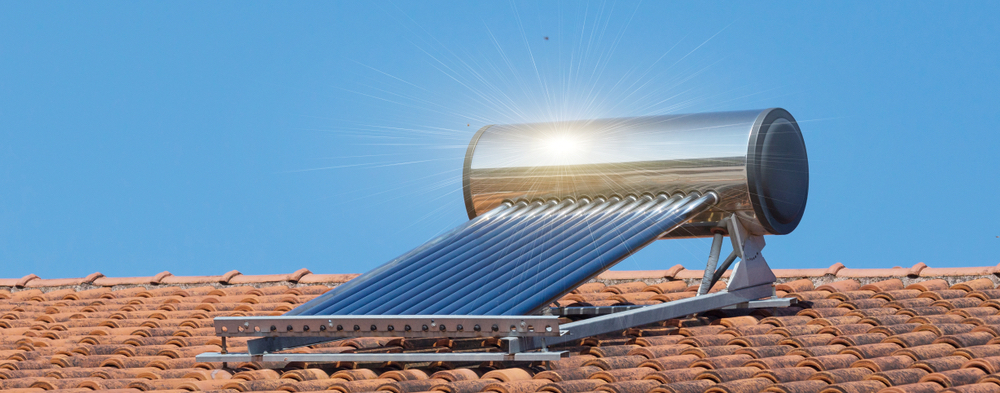
Solar-powered water heaters utilize the plentiful energy from the sun to supply hot water for both residential and commercial purposes.
Typically, these systems comprise solar collectors that capture sunlight and transform it into heat, along with a storage tank to contain the heated water.
Solar-powered water heaters are designed to operate harmoniously with nature, utilizing clean and renewable solar energy to meet hot water needs.
Pros Solar-Powered Water Heaters
- Renewable Energy Source: Solar-powered water heaters utilize solar energy, a renewable resource, reducing reliance on non-renewable fossil fuels and lowering carbon emissions.
- Energy Savings: By harnessing sunlight, these systems significantly reduce energy bills, making them a cost-effective solution in the long run.
- Environmentally Friendly: Solar-powered water heaters produce no greenhouse gas emissions, creating a cleaner environment and combating climate change.
- Low Operating Costs: Once installed, solar-powered water heaters have minimal operating costs, as they rely on sunlight, which is free and abundant.
Cons Solar-Powered Water Heaters
- Initial Cost: The upfront cost of installing solar-powered water heaters can be relatively high. However, various incentives and rebates are often available to offset these costs, making them more affordable.
- Weather Dependence: Solar heaters depend on sunlight, making them less effective on cloudy days or nighttime. Backup heating systems may be required in some regions.
- Space Requirement: Solar collectors need ample roof or ground space with good sun exposure, which may only be feasible for some properties.
Cost Solar-Powered Water Heaters:
The cost of solar-powered water heaters varies based on the system’s size, complexity, and location. On average, a professionally installed system can range from $3,000 to $5,000, with some larger systems exceeding this range.
Tankless On-Demand Water Heaters
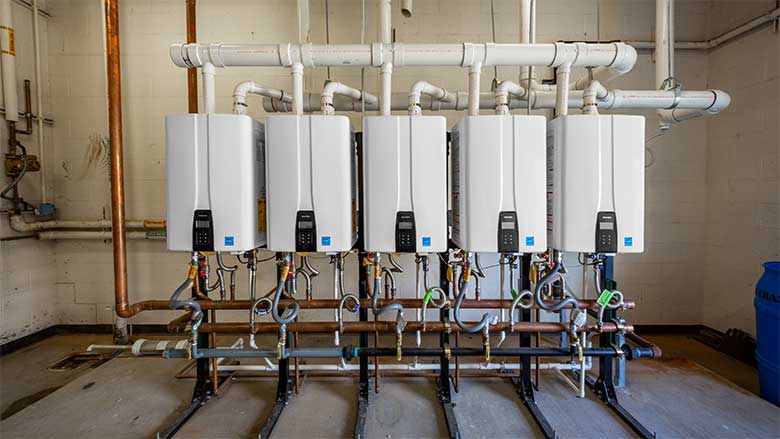
Tankless on-demand water heaters, or instantaneous or continuous flow water heaters, provide hot water without needing a storage tank. Instead of storing and constantly heating a large amount of water, these units heat water only when it’s needed, offering a more energy-efficient and space-saving solution for hot water requirements.
Pros of Tankless On-Demand Water Heaters:
- Energy Efficiency: Tankless on-demand water heaters are highly energy-efficient since they heat water only when there is a demand, eliminating standby heat loss associated with traditional tank-type water heaters.
- Endless Hot Water: With no storage tank to deplete, these units provide a continuous hot water supply, making them ideal for households with high hot water usage.
- Space-Saving Design: Tankless water heaters offer a space-saving advantage as they are compact and can be conveniently installed in confined areas, thereby creating extra storage space within homes.
Cons of Tankless On-Demand Water Heaters:
- Higher Initial Cost: Tankless water heaters typically come with a higher upfront cost than traditional water heaters.
- Limited Flow Rate: The flow rate of hot water from tankless units may be limited, especially in colder climates, if multiple hot water outlets are used simultaneously.
- Complex Installation: Installation can be more complicated, especially for retrofitting into existing homes, which might require additional modifications and professional expertise.
Cost of Tankless On-Demand Water Heaters:
The cost of Tankless On-Demand Water Heaters varies based on the unit’s size, features, and brand. On average, a tankless water heater can range from $500 to $2,500, with the cost depending on the capacity and efficiency of the unit. Professional installation services can add to the overall cost, but the energy savings and long lifespan of the unit make it a cost-effective choice in the long run.
Condensing Gas Water Heaters
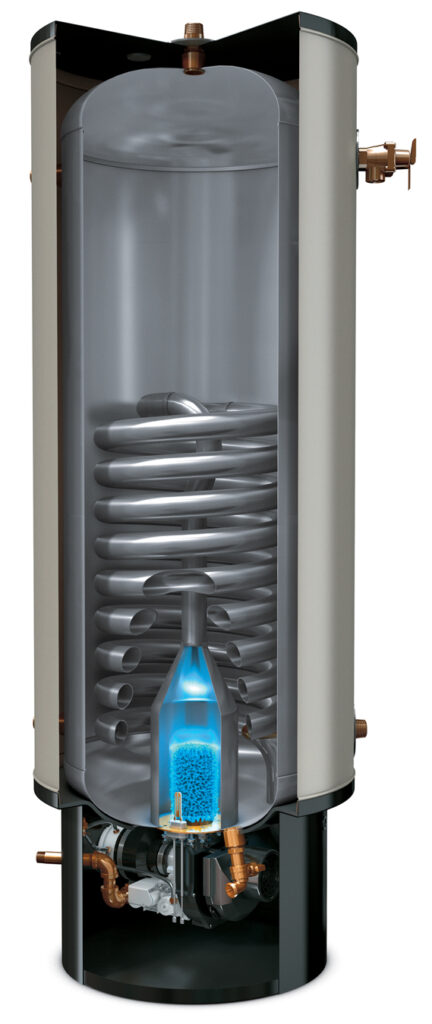
Condensing gas water heaters are advanced systems designed to maximize energy efficiency by capturing and reusing heat from exhaust gases. Unlike traditional gas water heaters, these units extract additional heat from combustion gases, allowing them to operate efficiently.
Pros of Condensing Gas Water Heaters:
- High Energy Efficiency: Condensing gas water heaters are highly efficient, capturing heat from exhaust gases and preheating incoming cold water.
- Reduced Energy Bills: By reusing heat that would otherwise be wasted, these heaters significantly lower gas consumption, leading to substantial energy savings.
- Environmentally Friendly: Lower gas consumption reduces greenhouse gas emissions, contributing to environmental conservation.
Cons of Condensing Gas Water Heaters:
- Higher Initial Cost: Condensing gas water heaters are more expensive to purchase and install than non-condensing models.
- Complex Installation: Installation may require additional modifications, and professional installation is recommended, adding to the overall cost.
Cost of Condensing Gas Water Heaters:
The cost of condensing gas water heaters typically ranges from $1,500 to $3,000 for the unit.
The installation cost of condensing gas water heaters ranges from $500 to $1500, depending on the complexity of the project.
Geothermal Heat Pump Water Heaters
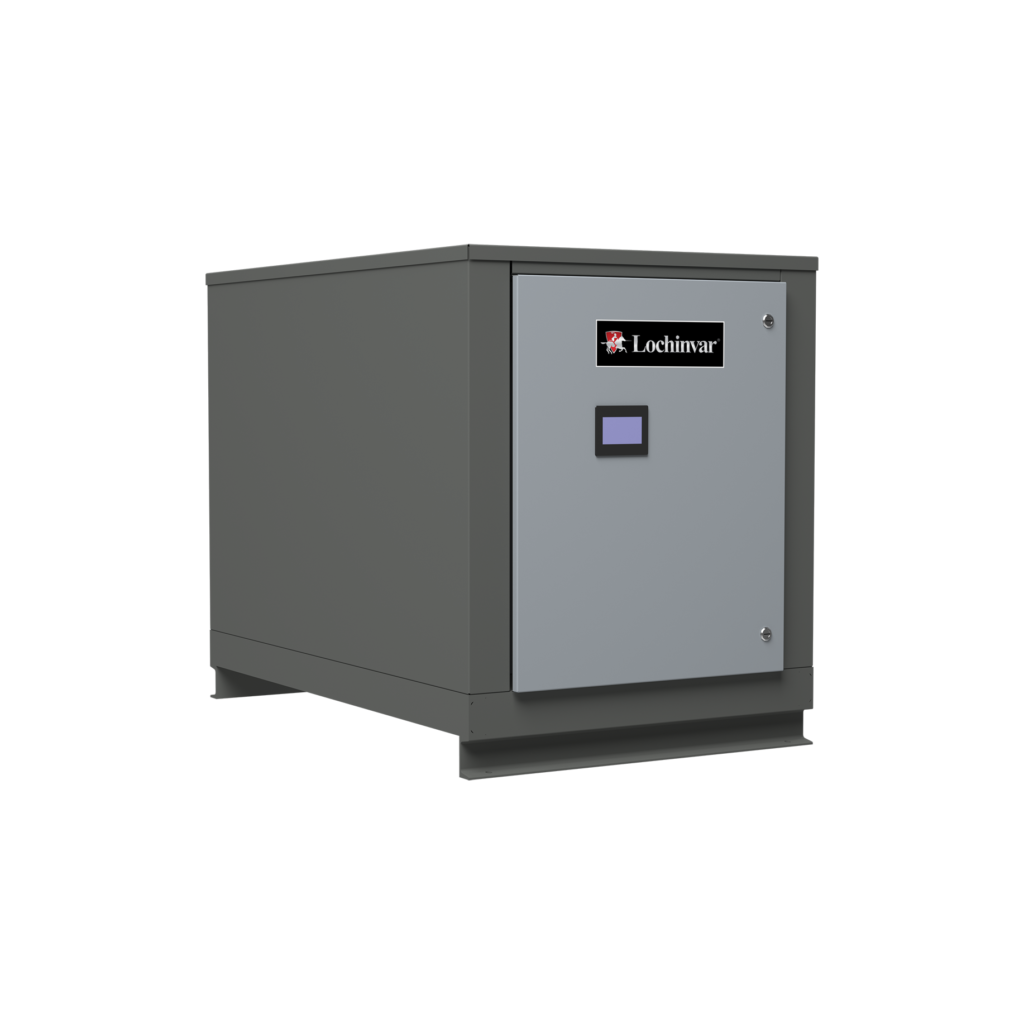
Geothermal heat pump water heaters utilize the stable temperature of the Earth to heat water efficiently. These systems employ geothermal heat pumps, which extract heat from the ground and transfer it to the water heater, providing a consistent and energy-efficient source of hot water.
Pros of Geothermal Heat Pump Water Heaters:
- High Energy Efficiency: Geothermal heat pump water heaters are exceptionally energy-efficient, as they tap into the Earth’s natural heat, reducing the need for electricity or gas to heat water.
- Environmentally Friendly: By relying on renewable geothermal energy, these water heaters produce minimal greenhouse gas emissions, making them environmentally friendly.
- Consistent Performance: Geothermal systems provide a stable heat source, ensuring a reliable hot water supply regardless of external weather conditions.
Cons of Geothermal Heat Pump Water Heaters:
- High Initial Cost: Geothermal heat pump water heaters have a significant upfront cost due to installing geothermal heat pump systems, making them more expensive than conventional water heaters.
- Installation Challenges: Proper installation requires expertise and may involve substantial modifications to the property, adding to the complexity and cost.
Cost of Geothermal Heat Pump Water Heaters:
The cost of geothermal heat pump water heaters can range from $2,500 to $5,000 for the unit itself. However, installing the geothermal heat pump system, which is integral to its operation, can significantly increase the overall cost. Installation costs depend on various factors and may range from $5,000 to $25,000, making it a substantial investment.
Wood-Pellet-Powered Water Heaters
Wood-pellet-powered water heaters burn wood pellets to generate heat, which is then used to heat water for residential or commercial use. These systems are a sustainable and eco-friendly alternative, utilizing renewable wood pellets as a fuel source.
Pros of Wood-Pellet-Powered Water Heaters:
- Renewable Fuel Source: Wood pellets are made from sustainable biomass materials, making them a renewable and environmentally friendly fuel source.
- Energy Efficiency: Wood-pellet-powered water heaters are energy-efficient, utilizing the heat produced from burning wood pellets to heat water effectively.
- Carbon Neutral: When sourced sustainably, wood pellets release only the amount of carbon dioxide the trees absorb during their growth, making them a carbon-neutral heating option.
Cons of Wood-Pellet-Powered Water Heaters:
- Storage and Handling: Wood pellets need to be stored properly to maintain their quality. Handling and storing them can be challenging in some residential settings.
- Maintenance Requirements: Regular cleaning and maintenance of the combustion chamber and exhaust system are necessary to ensure efficient operation.
- Initial Cost: While the upfront expenses for acquiring and installing wood-pellet-powered water heaters may surpass those of traditional water heaters, the eventual savings on fuel costs can balance out this initial investment.
Cost of Wood-Pellet-Powered Water Heaters:
The cost of wood-pellet-powered water heaters varies based on the system’s size, features, and brand. On average, these systems can range from $2,500 to $5,000 for the unit itself. Installation costs depend on complexity and location and may add to the overall expense.
High-Efficiency Electric Heat Pump Water Heaters
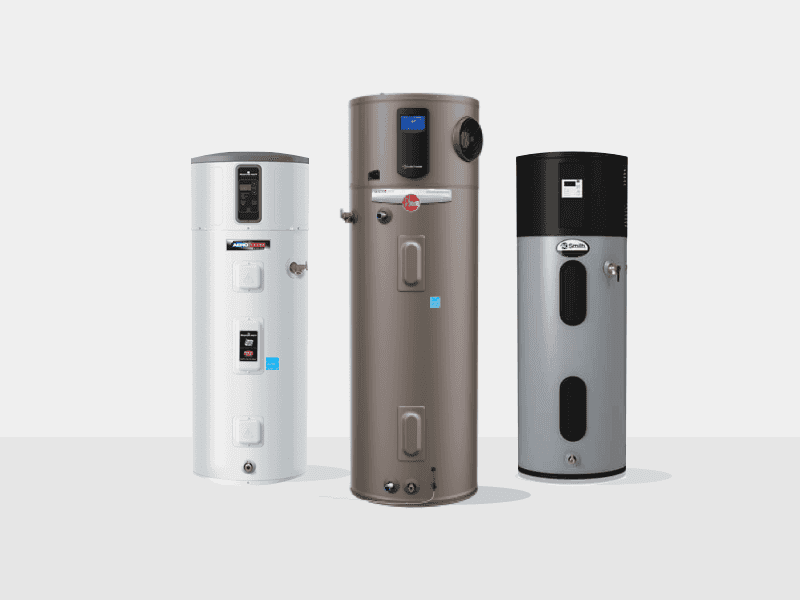
High-Efficiency Electric Heat Pump Water Heaters utilize advanced heat pump technology to heat water efficiently. These systems extract heat from the surrounding air or ground and use it to heat the water in the tank.
By leveraging the heat from the environment, these water heaters offer a more energy-efficient option compared to conventional electric water heaters.
Pros of High-Efficiency Electric Heat Pump Water Heaters:
- Energy Efficiency: HE electric heat pump water heaters are highly energy-efficient, as they utilize heat from the air or ground, significantly reducing electricity consumption.
- Environmentally Friendly: By relying on ambient heat, they produce fewer greenhouse gas emissions, creating a cleaner environment.
- Cost Savings: While they have a higher upfront cost, the energy savings lead to substantial reductions in electricity bills over time.
Cons of High-Efficiency Electric Heat Pump Water Heaters:
- Higher Initial Cost: The initial purchase and installation cost of these water heaters can be higher compared to traditional electric water heaters.
- Climate Dependency: Efficiency may vary based on climate conditions, with reduced performance in extremely cold environments.
Cost of High-Efficiency Electric Heat Pump Water Heaters:
The cost of High-Efficiency Electric Heat Pump Water Heaters ranges from $800 to $2,500 for the unit itself, with additional installation costs varying based on the complexity of the installation, ranging from $500 to $1,500.



